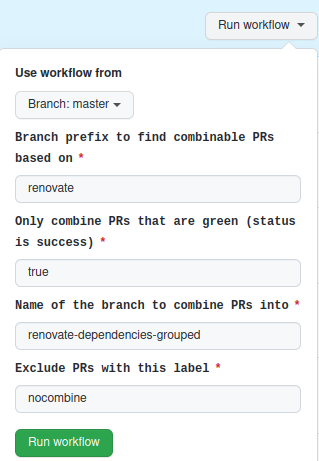Sorald 


Sorald is a tool to automatically repair violations of static analysis rules checked with SonarQube. It can currently repair violations of 25+ rules based on the design described Sorald: Automatic Patch Suggestions for SonarQube Static Analysis Violations.
If you use Sorald in an academic context, please cite:
@article{sorald2022,
title = {Sorald: Automatic Patch Suggestions for SonarQube Static Analysis Violations},
year = {2022},
author = {Khashayar Etemadi Someoliayi and Nicolas Yves Maurice Harrand and Simon Larsen and Haris Adzemovic and Henry Luong Phu and Ashutosh Verma and Fernanda Madeiral and Douglas Wikstrom and Martin Monperrus},
url = {http://oadoi.org/10.1109/tdsc.2022.3167316},
journal = {IEEE Transactions on Dependable and Secure Computing},
doi = {10.1109/tdsc.2022.3167316},
}Talks
Getting started
Prerequisites
Sorald supports macOS, Linux, and Windows.
For running Sorald, all you need is a Java 11+ runtime.
For building Sorald from source, you need a Java 11+ JDK, Maven >=3.6.3, and Git.
Running Sorald in 2 seconds
Sorald is available as a maven-plugin so you can run it from the command line with Maven.
mvn se.kth.castor:sorald:repair -DruleKey=<ruleKey>Note: Sorald
maven-pluginis still in rudimentary stages. We have added two goals to it -mineandrepair. They both are analogous to the CLI tool. However, not all parameters are supported yet. We are working on adding more.
For example, the following commands repair violations of S1132 in SonarSource/sonar-scanner-cli@5c518d6.
# Cloning and moving into the project
git clone git@github.com:SonarSource/sonar-scanner-cli.git
cd sonar-scanner-cli/
git checkout 5c518d6a
# Running Sorald
mvn se.kth.castor:sorald:repair -DruleKey=S1132
# Checking the result
git diffYou may also see the demo video:
Getting a Sorald JAR
To run Sorald, you need to first get your hands on the program. You can do this
either by building from source, or going to the latest
release and
downloading the file called sorald-<VERSION>-jar-with-dependencies.jar listed
under Assets. Unless you keep multiple versions of Sorald, we recommend
renaming the JAR to sorald.jar for the sake of simplicity.
Build
-
Clone this repository:
git clone https://github.com/SpoonLabs/sorald.git -
Build:
$ cd sorald
$ mvn package -DskipUnitTests
$ cp sorald/target/sorald-*-jar-with-dependencies.jar sorald.jarThe Sorald application can now be found in sorald.jar in the current working
directory.
Usage
Sorald can perform two different tasks: automatically repair violations of Sonar rules in a
project, or mine projects for rule violations. These two modes of operations
are available as the two commands repair and mine, respectively.
For the remainder of this section, assume that we have defined the following alias:
alias sorald='java -jar /abs/path/to/sorald.jar'If you don't like using aliases, simply substitute in java -jar sorald.jar
for any occurrence of sorald in these instructions.
Repairing rule violations (the repair command)
To repair rule violations, use the repair command.
$ sorald repair <arguments ...>Basic usage consists of specifying a project to target and a rule to repair
violations of. The available rules can be found here,
and are specified by their key. For example, to repair violations of the rule
2111: "BigDecimal(double)" should not be used in a project at
some/project/path, one can invoke Sorald like so.
$ sorald repair --source some/project/path --rule-key 2111The full list of options is documented here
(and can also be found by running sorald repair --help):
Mining Sonar warnings (the mine command)
To mine projects for Sonar warnings, use the mine command. Its most basic
usage consists of simply pointing it to a project directory.
$ sorald mine --source path/to/projectIt will then output statistics for that project with the Sonar checks available in Sorald.
Another option is to execute the miner on a list of remote Git repositories, which can be done like so.
$ sorald mine --stats-on-git-repos --git-repos-list repos.txt --stats-output-file output.txt --temp-dir /tmpThe --gitReposList should be a plain text file with one remote repository url
(e.g. https://github.com/SpoonLabs/sorald.git) per line. Sorald clones each
repository and runs Sonar checks on the head of the default branch.
The full list of options documented here
(and can also be found by running sorald mine --help).
Running Sorald on GitHub projects to propose PRs with fixes
To run Sorald on projects towards proposing fixes in the form of PRs, look at this Git repository for an example. In it, Sorald is ran on the three Apache projects defined in the projects_for_model_1.txt file.
Academic bibliographic references
"Sorald: Automatic Patch Suggestions for SonarQube Static Analysis Violations" (Khashayar Etemadi, Nicolas Harrand, Simon Larsen, Haris Adzemovic, Henry Luong Phu, Ashutosh Verma, Fernanda Madeiral, Douglas Wikstrom and Martin Monperrus), Technical report, arXiv 2103.12033, 2021.
"A template-based approach to automatic program repair of Sonarqube static warnings", by Haris Adzemovic, Master's thesis, KTH, School of Electrical Engineering and Computer Science (EECS), 2020. (bibtex)
Experiments with Sorald
Sorald-Experiments repository includes the data related to our experiments with Sorald that are part of a recently conducted research project.
Collaborators
If you relate to #755, a convenient solution has been integrated to this repository. We have created a workflow called combine-prs.yml that allows you to combine pull requests into one so that all those PRs can be merged at once. It is inspired by https://github.com/hrvey/combine-prs-workflow/.
Please read the following steps to trigger the workflow.
-
Go to combine-prs action.
-
Click on the drop-down "Run workflow". You will see a window to accept inputs for the workflow.
-
Finally, clicking "Run workflow" triggers the workflow to create a pull request containing commits from all branches that satisfied the input. Example: #770.
Contributing
Contributions are welcome! Feel free to open issues on this GitHub repository, and also to open pull requests for making this project nicer (see instructions here).

